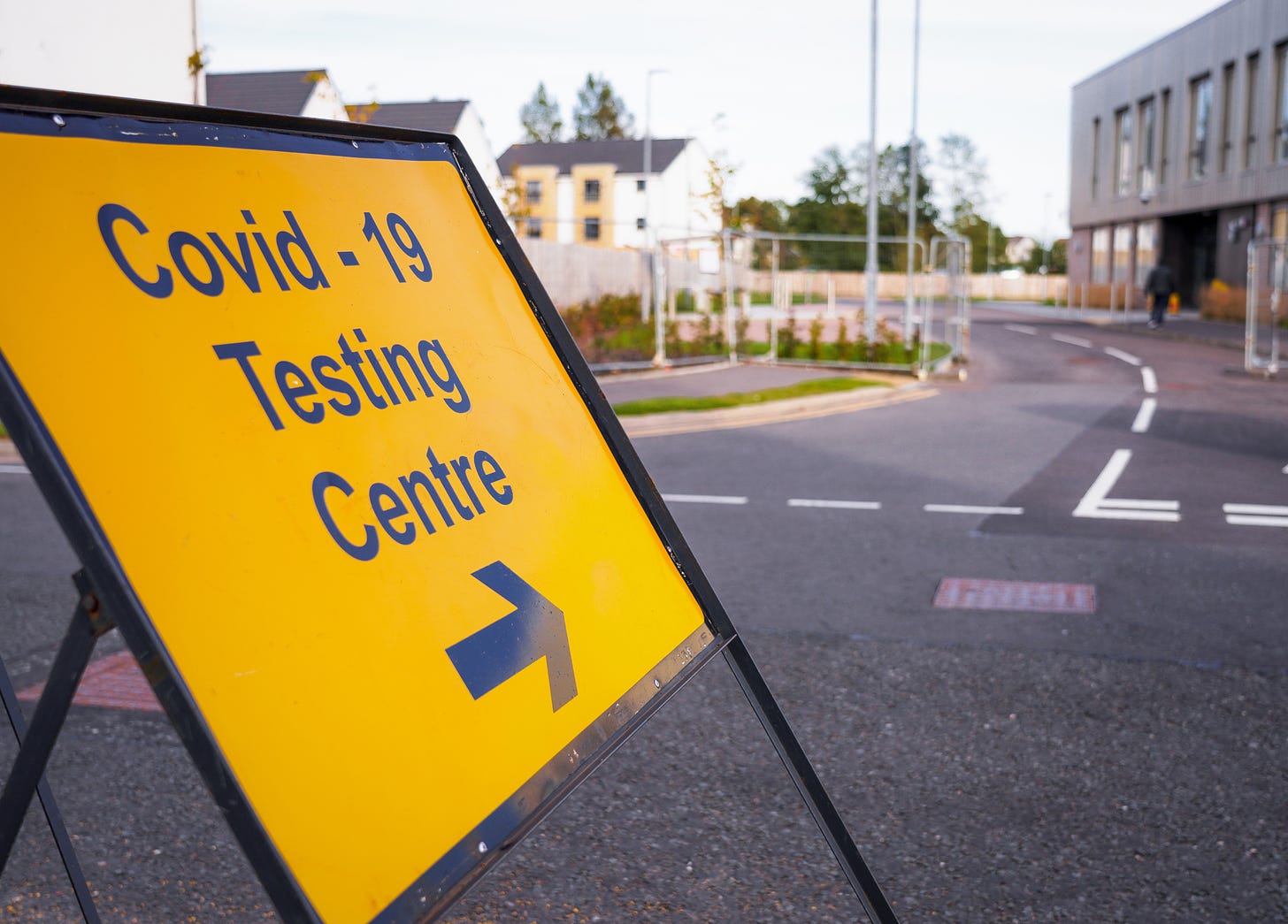I have written frequently here about my belief in the value of sharing our health data for research and my frustrations with the delays in making that happen. Most recently, I was perhaps a little too impatient with GPs who have failed to push a button to allow their patients’ data to be shared with UK Biobank, even though they had given their consent for that to happen.
But since then I have spoken to a man who has some sympathy with the GPs, and has opened my eyes to the real problem besetting attempts to exploit the NHS’s data goldmine - a lack of trust.
Iain Buchan, Professor of Public Health and Informatics at the University of Liverpool, tells me he has been working in the field of health data for 30 years, starting as a medical student identifying the emergence of child obesity by crunching the numbers that were available. But he says even then “it was very clear we didn't use the data that was stored to inform important actions.”
His career has been all about closing the gap between data and action, notably with Liverpool’s very successful CIPHA, Combined Intelligence for Population Health Action, an initiative to bring together health, social care and administrative data from 2.7 million people in Merseyside and Cheshire. Work started on this in 2019 but accelerated at warp speed when the pandemic arrived early the following year: “An integrated {data} record was stood up in 90 days, which is a record. It had previously taken me six years in Manchester to do the same thing,” says Professor Buchan.
CIPHA then helped with a whole range of responses to Covid-19, including enabling a world leading mass testing programme in the Merseyside area which cut cases by a fifth, and linking ticketing and testing data to allow the safe reopening of major cultural events as the pandemic retreated.
Two things have been vital to the success of this mission, keeping it local and building trust. “You can't organise this at all-England level for love nor money. It's just hopeless. But regionally, you can link GP, hospital, public health, social care, other forms of data.”
They were able to engage with the GPs locally, in ways that were beyond UK Biobank, and made them feel they had a vital role:“We wanted to use the system to improve services after the pandemic, so had to take everyone with us. And the GPs drew very close- it's developed a set of people who approve data uses and are agitating now for improvement, for example, AI to improve medicines safety.”
Professor Buchan isn’t opposed to the formulation of big national databases but feels in the case of both care.data and the GPDPR plan to centralise the collection of GP. records, the communication with the public and health professionals went horribly wrong.
“Do the data service nationally, but hand it to the localities to be masters of their own data,’ he advises. “So be a servant nationally, and allow the communication with communities to come from those communities. Don’t preach from the centre.”
And he feels that too often, these projects get things the wrong way round, first assembling the database, then deciding what to do with it, instead of working out what needs to be done then getting the data that would enable that. So, what is his overall recipe for success in health data projects?
“Never take trust for granted, it has to be earned and maintained. Work within a diameter of trust to solve problems for the population you serve. In doing so, you will generate better uses of the data, you'll generate better technologies with the data because you're closer to the problem solving.”
Iain Buchan sees huge potential in the vast amounts of data generated by the UK’s centralised system, as the battle to feed new AI systems that could revolutionise healthcare intensifies. “Innovation in digital health should be outstanding in the UK. We can achieve that, there are pockets of critical mass that we need to wire up as a national grid, so we are in the driving seat.”
But he fears that we may end up as passengers, with overseas companies moving in and the patients and communities providing the data missing out on the benefits of the innovations it generates.
From my point of view, the real issue is that the benefits of sharing health data have not been explained to the public - or sometimes even to the GPs who act as gatekeepers - while the dangers certainly have. Whether it is nationally or locally, the health data industry needs to start telling a better story.



The issue is one of consent. Thete are many reasons why patients may need to keep their data private. Data colkection projects such as Care.data will always fail unless this is addressed properly. Make sure that every single person in the Country is aware of the collection, and exactly who will have access, and ensure an easy process of opting out. Only then will you start to build the essential trust.
There has been some significant progress on one of the points raised by Professor Buchan: keeping it local. Although underway for some years, cooperation locally here among healthcare organisations (Social Care & NHS), to collect and analyse anonymised patient and service user data was given a huge boost by the Covid pandemic which allowed the NHS CCG to produce an information dashboard giving immediate visibility to rates of infection, hospital admissions, hospital & ICU bed occupancy, fatalities etc. The net result has been to highlight to everyone, including patients, the NHS centrally & DoHSC, the value of data being shared and available to trusted local organisations.
This won't resolve the continuing, underlying issue of "trust" in national NHS organisations or indeed the chaotic DoHSC which appears to lurch from one crisis to the next depending on the latest political whim.